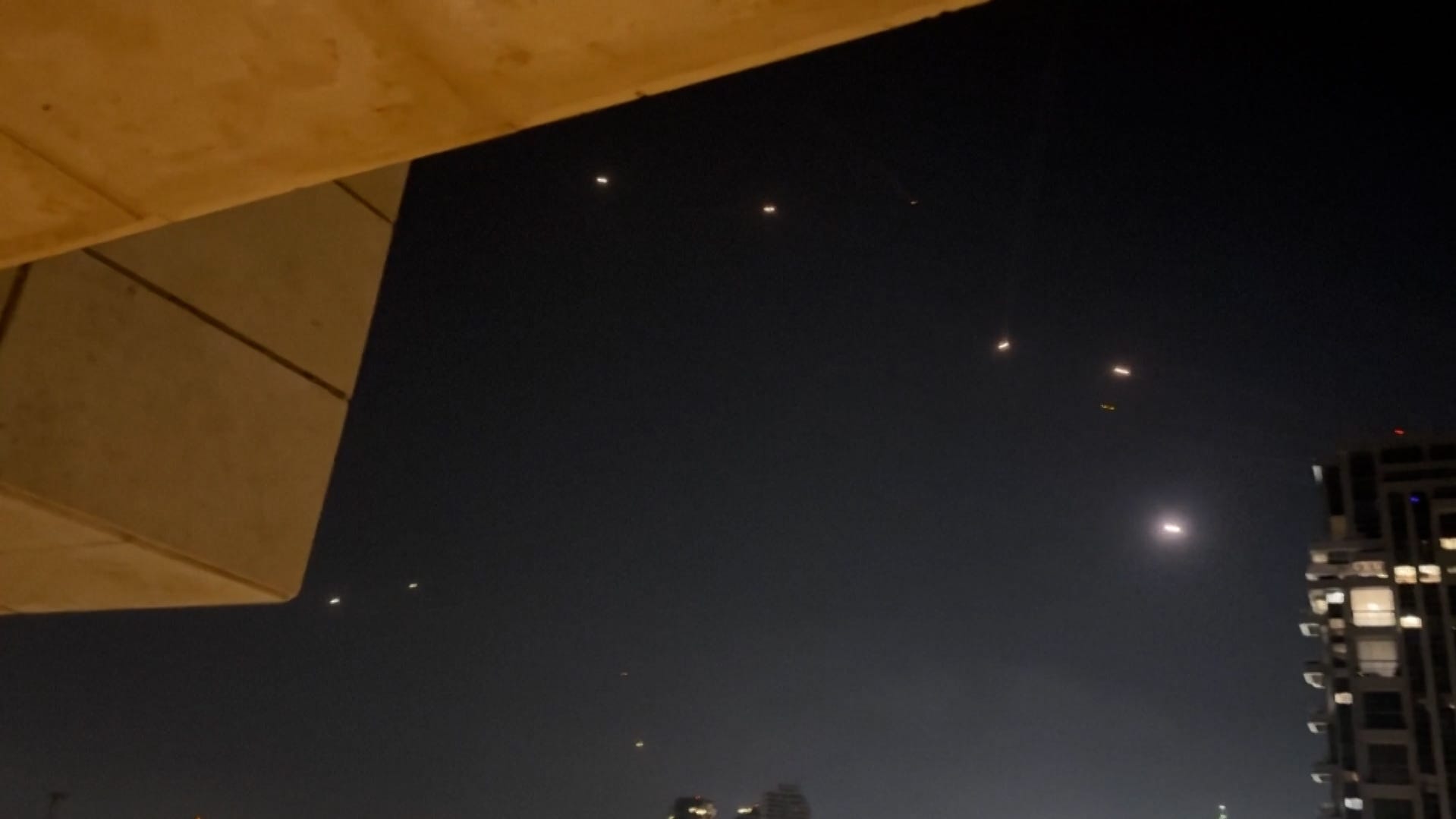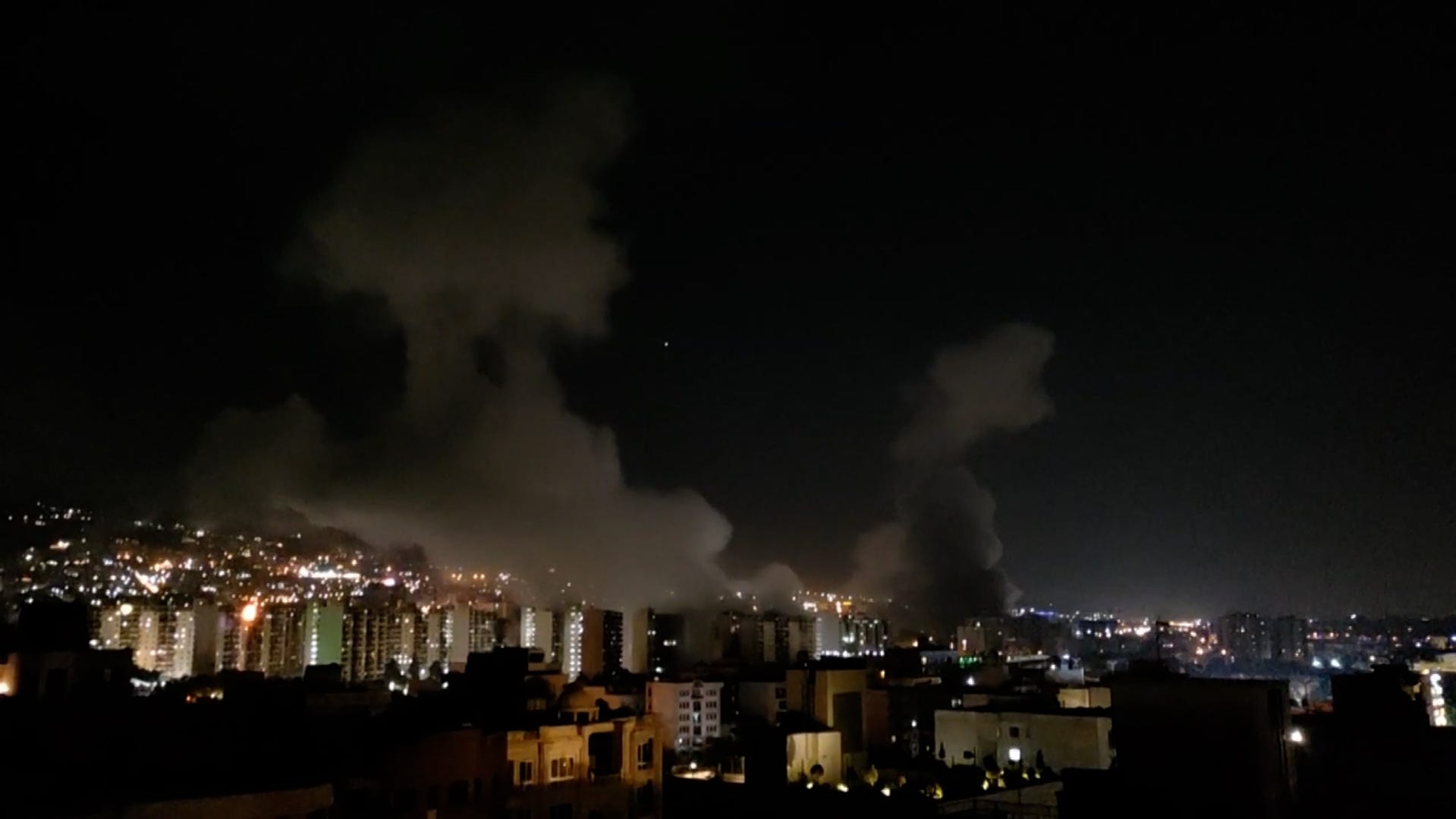Iran and Israel continued their missiles and airstrikes on June 14, the day after Israel launched a wide air attack on its old enemies.

Iran counterattacks, missile launch waves in Israel
Iran has launched a missile counterattack in Israel. This comes after Israeli missile attacks damaged Iran’s nuclear and military facilities.
- Iran has fired dozens of missiles, says Israel has been intercepted to some extent.
- Dozens of people reported dead after a hit in a Tehran apartment block.
- Oman’s Foreign Ministry said talks between the Trump administration and Iran on June 15 had been cancelled.
- “We will attack all sites, all targets of the Ayatollah regime,” said Israeli Prime Minister Benjamin Netanyahu.
WASHINGTON – The Israeli Defense Minister warned that “Tehran will burn” if Iran continues to take a retaliatory strike against Israel’s “home front” as the fear of a long and destructive conflict between regional archenemies has emerged.
Iran and Israel continued missiles and airstrikes on June 14, the day after Israel launched a bold air attack on old enemies, killing commanders and scientists, and bombing nuclear sites to prevent Tehran from building nuclear weapons.
The International Atomic Energy Agency said Israel attacked four “Isfahan nuclear sites” on June 13, including “uranium conversion facilities and fuel plate manufacturing plants.” No radiation leaks were detected.
“Our pilots look at the Tehran sky,” Israeli Prime Minister Benjamin Netanyahu said from a private location late June 14th. “We have nothing compared to all the sites, every target of the Ayatollah regime, and what they’ve been feeling so far, compared to what will be handed over in the next few days.”
Iranian television reported that around 60 people, including 20 children, were killed in the attack on residential complexes, as Israel said it had attacked more than 150 targets, as more strikes have been reported across the country.
The sirens in the air raid sent the Israelis to shelter as missiles crossed the air and the interceptor rose to meet them, killing at least three people. Israeli officials said Iran fired around 200 ballistic missiles in four waves.
We were helping to fire down the incoming missiles, but the Iranian fire was hit by a residential area. Israeli Defense Minister Israel Katz said Iran has crossed the line.
“As Khamenei continues to fire missiles at Israeli home front, Tehran will be on fire,” he said in a statement.
President Donald Trump praised Israel’s strike and warned that it would be bad enough to come, unless Iran quickly accepts a sharp downgrade to its nuclear programme demanded by the US at a meeting that was scheduled to resume on June 15th.
But Israel says its operation could last for weeks, urging Iranians to stand up to Muslim administrative rulers, fearing that global economic and financial impacts will drag local wars into being dragged by external forces.
The UK is moving additional military assets, including fighter jets, to the Middle East, Prime Minister Kiel Starmer said on June 14.
According to Iran’s UN envoy, Iran destroyed Tehran’s nuclear and military leaders, destroyed nuclear power plants and military bases, and killed 78 people, including civilians.
Tehran warned Israeli allies that if they help fire down Iranian missiles, regional military bases would also be attacked, Iranian state television reported.
Iran’s allies wobble
Iran’s own ally, Yemeni Hooty Group, launched a missile in Israel on the night of June 13th. At least one appeared to be lost after injuries to five Palestinians, including three children, were injured on the West Bank of Israeli tribes, according to Palestinian Red Crescent.
However, 20 months of war in Gaza and the conflict in Lebanon last year have decimated Tehran’s strongest allies, Hamas in Gaza and Hezbollah in Lebanon, diminishing their ability to project force across the region along with options for retaliation.

Israel launches attack on Iran
Israel began a military operation against Iran after not halting uranium enrichment.
“Iran spent decades building a so-called axis of resistance that was thought to be a pioneer who made Israel think twice about attacking Iran again,” said Mohammad Bazzi, director of the New York University Middle East Center. “It’s gone.”
Long-standing distrust of Iran, fears of being attacked by the wider conflict were moderately spurred as crude prices rose by around 7% on June 13.
Israel and Iran explosions and fear
Iran’s overnight Fujirad contained hundreds of ballistic missiles and drones, Israeli officials said. Three people have been killed, including a man and a woman, and dozens have been injured, ambulances said.
Israeli forces have said they have intercepted not only drones but Iranian missiles from the surface to the surface, and that two rockets have been fired from Gaza.
“The road to Iran is paved,” said Israeli Air Force chief Tomabar, who said that “the road to Iran is paved.”
In Iran, the capital was heard overnight explosions, state media reported.
State television reported that Shahid Chamran, a 14-storey residential complex, had been flattened by missiles. There was no immediate official confirmation, but 60 people said they had been killed. Israeli military did not immediately comment on the report.
Iran’s UN envoy Amir Saeid Irabani said 78 people were killed and more than 320 were injured in Israel’s June 13 strike, most of which were civilians.
Gas production was suspended in parts of Iran’s Southpursfield after the Israeli attack on June 14, the semi-dedicated Tasnim News Agency reported.
Iran’s nuclear site has been damaged
Israel views Iran’s nuclear program as a threat to its existence, saying the bombing was designed to avoid a final step towards nuclear weapon production.
“We were in 90 minutes,” Netanyahu said. “There was a race that brought about atomic weapons aimed at destroying Israel, in order for Iran’s nuclear teams to create nuclear bombs.”
Israel has killed nine Iranian nuclear scientists and said damage to Esfahan and Natanz’s nuclear facilities would take “more than a few weeks” to repair.
Tehran claims that the programme is entirely civilian in line with its obligations under the Nuclear Non-Proliferation Treaty (NPT) and does not seek an atomic bomb.
However, it repeatedly hides some of its programmes from international inspectors, and the International Atomic Energy Agency reports it is a violation of the NPT.
Israel, widely understood to have developed a nuclear bomb, not an NPT signator, says that enemies in major regions cannot acquire atomic weapons.
Iran is in talks with the US to resolve the nuclear conflict.
Oman’s Foreign Ministry said the talks between the US and Iran on June 15 had been cancelled. US officials said USA Today is continuing to be committed to negotiations.
“The other side (US) acted in a way that rendered dialogue meaningless. You cannot insist on negotiation. At the same time, you will divide your work by allowing the Zionist regime (Israel) to target Iran’s territory,” state media quoted Esmaeil Baghaei, a spokesman for the Ministry of Foreign Affairs.
In Rome, Pope Leo appealed “to blame and reasoning.”
Contribution: Reuters; Francesca Chambers, USA Today
